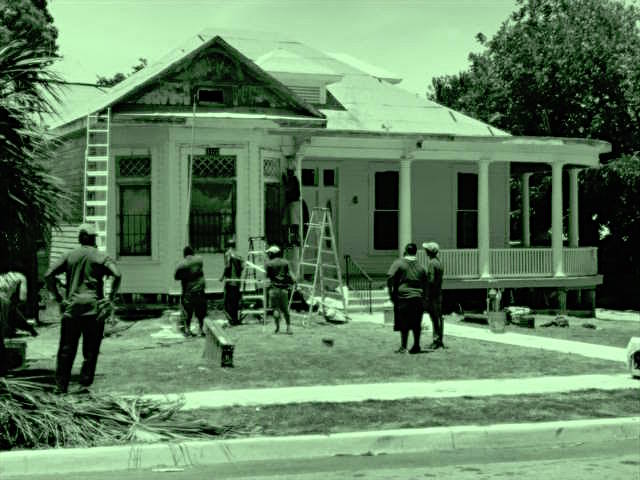This op-ed was published originally in the Express News: Commentary: Tree exception has become the rule” (February 9, 2021) by Cynthia Spielman and Cosima Colvin, Steering Committee members of the Tier One Neighborhood Coalition.
Re: “Killing Trees,” by Brian Chasnoff, Front Page, Jan. 24
The fact that in every instance, Michael Shannon and the city of San Antonio’s Development Services Department waived the tree ordinance to make exceptions for developer requests is unsurprising to anyone working on neighborhood issues.
An “arbitrary approach to the codes” is something people living in downtown neighborhoods feel they are faced with almost every time a developer wants a zoning change or variance for a project, no matter how incompatible or against the “spirit of the ordinance.” When every case is treated as an exception, the exception becomes the rule.
Residents have seen, repeatedly, how Development Services works with the development community to discard the standards in the Unified Development Code to preserve our natural and built environments. Even in neighborhoods “protected” by a zoning overlay (historic districts or neighborhood conservation districts), Development Services staff has helped developers overbuild lots to maximize profits.
Time after time, Development Services staff approves plans, including exceptions to legal ordinances, that continue to erode our neighborhoods through their interpretations of code. We ask ourselves, much like Debbie Reid, a former city arborist quoted in the article, why have ordinances or standards if every exception is approved? Like the tree ordinance, these standards have become a façade of protection.
Residents work tirelessly to get Development Services to adhere to the ordinances on the books. This places undue burden on the people of this city, especially those with the fewest resources. Meanwhile, the development community is almost always included in discussions regarding new ordinances that will affect it and all too often influences how those ordinances are written.
We mistakenly think Development Services works for residents when actually it serves developers, who are their customers. It is funded by permits and developer fees. We naively expect Development Services to regulate the very entities on whose success it depends.
When the city does try to develop and implement policies that are more community-friendly, it has the challenge of defending those measures against a state government that weighs in on the side of developer. When you have someone like state Sen. Roland Gutierrez sitting within that house of power maneuvering for an exception, it becomes a daunting task indeed to say, “No.”
It should be the job of the city to strike a balance that benefits developers and residents. When the city stands behind and enforces its ordinances, exhibiting a culture of consistency rather than leniency, everyone knows the rules and can plan accordingly. Developments are more likely to be compatible with the neighborhood and contribute to its revitalization and stability.
We appreciate Chasnoff and Reid for bringing this issue into the light, and we appreciate the hard work of neighborhood leaders who, without the benefit of attorneys and staff, work tirelessly to hold developers and the city to account. We hope Chasnoff continues investigating other areas where Development Services is failing to hold developers accountable to the laws that City Council has passed.
Cynthia Spielman and Cosima Colvin sit on the steering committee of the Tier One Neighborhood Coalition.
